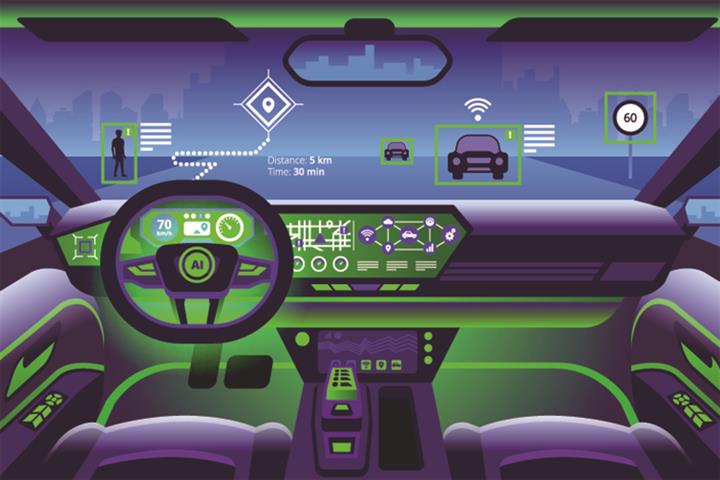 China Is Working on Vehicle-Road-Cloud Integration Plan Likely to Cost USD376 Billion
China Is Working on Vehicle-Road-Cloud Integration Plan Likely to Cost USD376 Billion(Yicai) Aug. 12 -- China is developing a future auto development plan, in which pilot cities will upload car and road sensor data to the cloud for analysis. It will promote the use of smart driving, but will likely cost about CNY2.7 trillion (USD376 billion), according to industry insiders.
The Ministry of Industry and Information Technology announced a vehicle-road-cloud integration plan in January, and early last month it named 20 cities including Beijing and Shanghai as the first pilot cities, indicating the country’s determination to push the development of intelligent connected vehicles.
“The nation will first have 20 pilot cities for vehicle-road-cloud integrated ICVs, and then connect these key cities via 30 smart highways,” Lv Bin, vice president of self-driving services provider Mogo.ai, told Yicai in an interview. “The country will initially achieve smart transportation 1.0 in 2026.”
In the longer term, China aims to equip its more than 5.4 million kilometers of roads with smart devices to coordinate with cloud control platforms and communications systems.
Installing the necessary smart hardware on roads will cost CNY1 million to CNY2 million (USD139,000 to USD279,000) per kilometer, an analyst told Yicai. Even if that were to fall to CNY500,000 (USD69,600) per km in the future, it would still cost CNY2.7 trillion to equip all roads with smart devices, which is similar to the investment that went into the high-speed railroad network, the person noted.
One key issue to overcome is that the industry has focused on the intelligence of individual cars so far. But as the number of autonomous vehicles rises, the various systems of different brands will need to be integrated, and they will have to be able to run alongside non-smart cars, Lv said.
The United States previously had similar plans, but shelved them, partly because the US lacks mature technologies in this area and building the needed infrastructure is proving a challenge in Western countries, Lv noted, adding that China has certain advantages in these respects.
Editor: Tom Litting